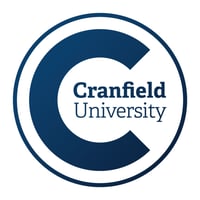
A journey is a metaphor widely used for those studying for a PhD degree because the experience inevitably leads the student down paths not previously trodden and arrives at a destination that is scarcely imaginable at the outset. It is especially apt perhaps for those students at Cranfield University in the Transport theme, where the Cranfield Safety and Accident Investigation Centre (CSAIC) is located.
Four students in CSAIC embarked on their respective journeys at different times in the past but have all recently arrived at their own destinations having satisfied their examiners that their thesis merits the award of a PhD. For one, and unusually, the initial submission was deemed satisfactory and provided a straightforward landing. But the others, to continue the aeronautical analogy, were forced ‘to go around’ and enter a holding pattern during which necessary corrections and amendments were made to the original submission before they too were allowed to land successfully.
The topics studied by each of the four graduands demonstrates some of the rich variety of research currently being pursued in the Centre. A brief synopsis of each now follows.
Besides pilots, aircraft are used to train a wide variety of other professionals. While instruction for developing pilot competencies is well understood, the knowledge base for how to instruct these other professionals is much more limited, even though they will be operating in the same aerial environment. This thesis developed a process for enabling instructors to design effective training and evaluation for these other professionals drawing on the best aviation and education practices. Aircraft ground handling is a fertile ground for safety performance improvement. Using a systems theoretic perspective one of the graduands developed a model to identify limitations in current operational practice that permitted suggestions for real practical improvements to the safe performance of these operations.
Pilots do not always recognise flight safety events. These events may be categorized as typical or non-typical. The advantage for the pilot of the former is that they are more easily recognised and generate a reliable and consistent response. The latter, however, cause delayed or inappropriate responses. Such responses to these events can damage safety. While investigating these responses, the study developed an innovative digital application to improve pilot knowledge of high-risk event factors. It also suggested more nuanced insights into recent aircraft accidents and also recommended changes to pilot education.
The final thesis addressed the current trend for criminalizing aviation professionals in the wake of aviation accidents, where accident investigators have been invited to testify to experts to help judges deliver justice for affected parties. Safety in aviation is predicated strongly on the existence of a culture where errors are investigated openly and fairly and learning shared. The work in this thesis developed a framework to help independent safety investigators to address and prevent pilot error cases from reaching court, mitigating the negative impact of the current trend on the sector’s safety culture.
Congratulations are due to all four students. We look forward to celebrating their success with them and their families at this year’s graduation ceremony in July. And for those interested in testing their mettle on this most demanding of individual personal development journeys please contact Dr Colin Pilbeam (colin.pilbeam@cranfield.ac.uk) who would be delighted to have a conversation about studying for a PhD in the Centre.
Interested in learning more? Our Cranfield Safety and Accident Investigation Centre (CSAIC) offers a number of accident investigation-focused CPD courses. Get in touch for further information.
